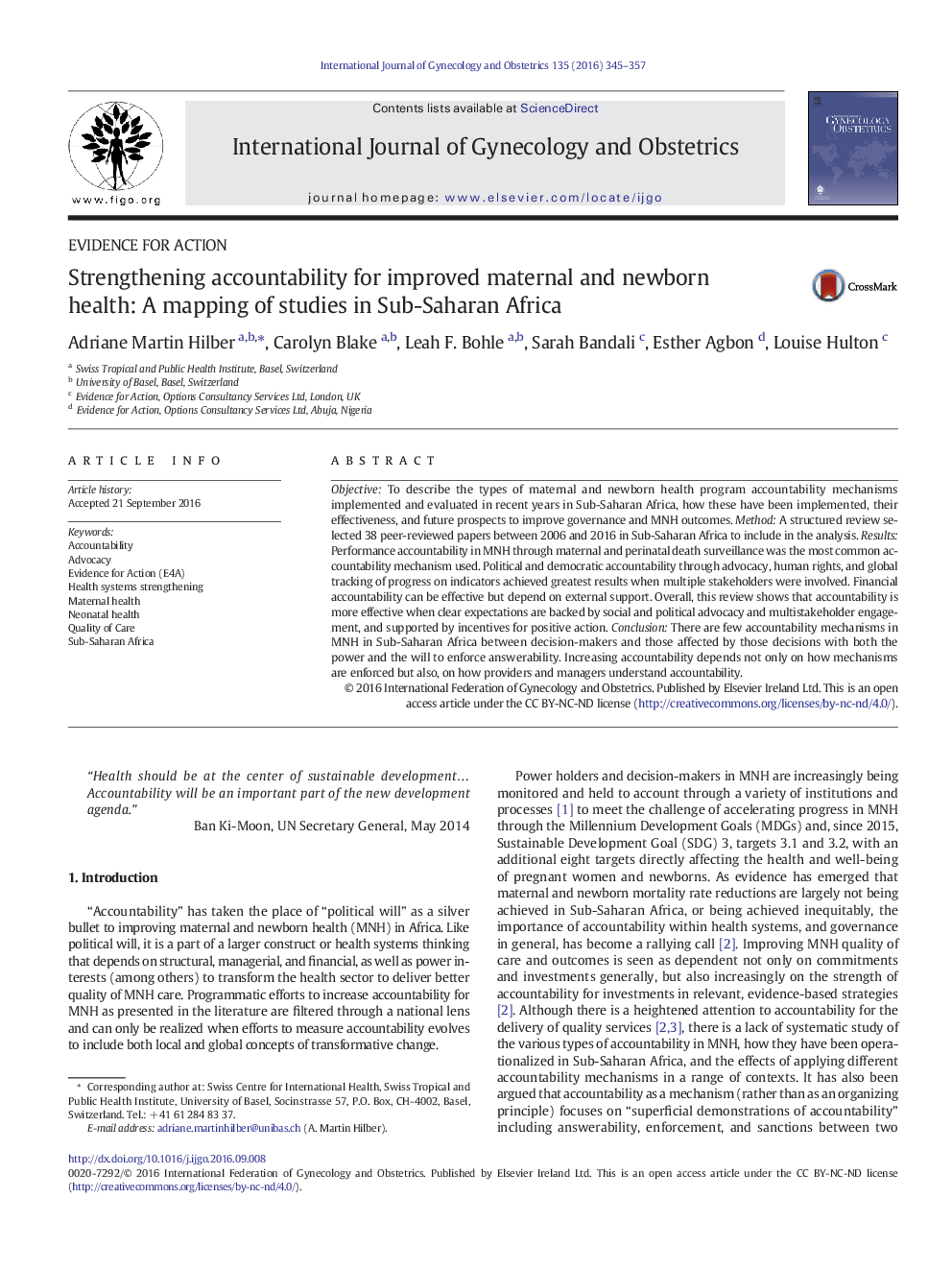| Article ID | Journal | Published Year | Pages | File Type |
|---|---|---|---|---|
| 6187070 | International Journal of Gynecology & Obstetrics | 2016 | 13 Pages |
ObjectiveTo describe the types of maternal and newborn health program accountability mechanisms implemented and evaluated in recent years in Sub-Saharan Africa, how these have been implemented, their effectiveness, and future prospects to improve governance and MNH outcomes.MethodA structured review selected 38 peer-reviewed papers between 2006 and 2016 in Sub-Saharan Africa to include in the analysis.ResultsPerformance accountability in MNH through maternal and perinatal death surveillance was the most common accountability mechanism used. Political and democratic accountability through advocacy, human rights, and global tracking of progress on indicators achieved greatest results when multiple stakeholders were involved. Financial accountability can be effective but depend on external support. Overall, this review shows that accountability is more effective when clear expectations are backed by social and political advocacy and multistakeholder engagement, and supported by incentives for positive action.ConclusionThere are few accountability mechanisms in MNH in Sub-Saharan Africa between decision-makers and those affected by those decisions with both the power and the will to enforce answerability. Increasing accountability depends not only on how mechanisms are enforced but also, on how providers and managers understand accountability.
